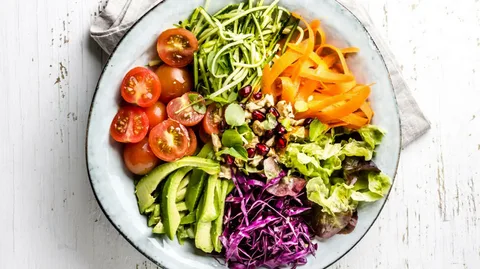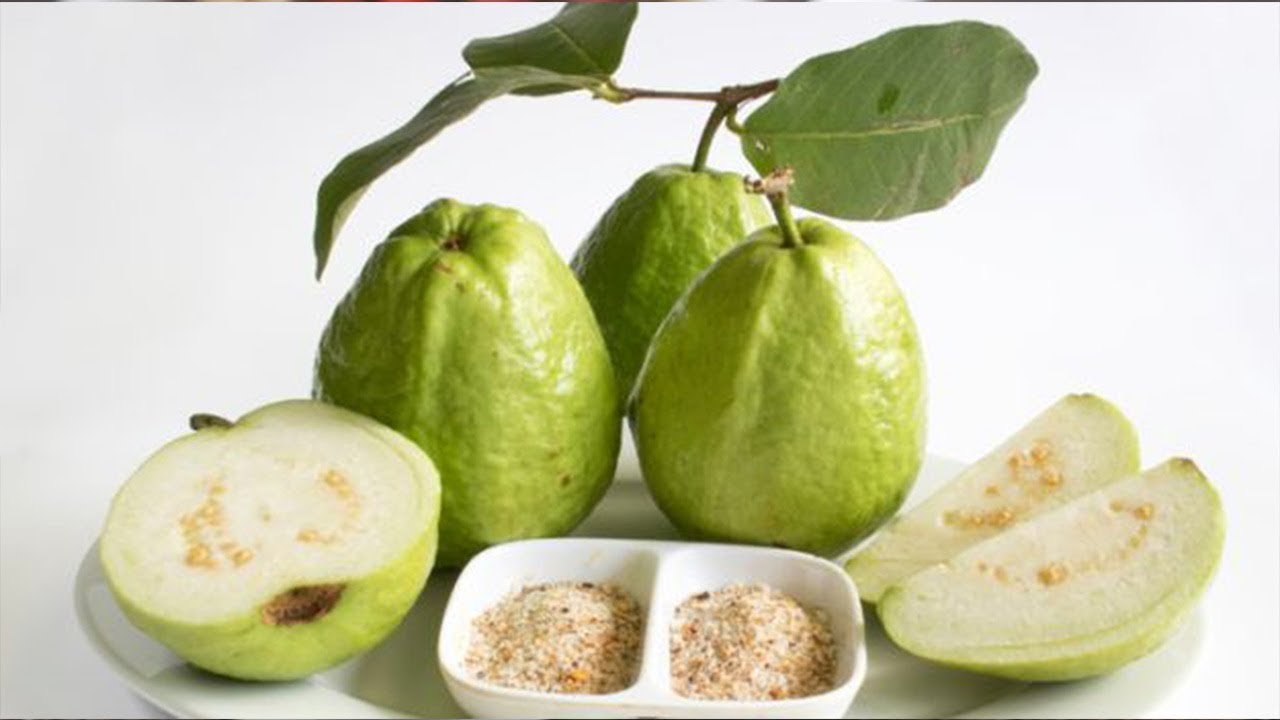Introduction to the Raw Vegan Diet
The raw vegan diet has gained popularity in recent years as a plant-based lifestyle that emphasizes the consumption of uncooked, unprocessed, and plant-derived foods. This comprehensive guide aims to provide an in-depth exploration of the raw vegan diet, including its benefits, risks, meal planning strategies, and tips for success.
What is the Raw Vegan Diet?
The raw vegan diet, also known as raw foodism, is a dietary approach that excludes all animal products and involves consuming primarily raw, uncooked, and unprocessed plant foods. This includes fruits, vegetables, nuts, seeds, sprouted grains, and legumes, as well as cold-pressed oils, fermented foods, and dehydrated snacks. Advocates of the raw vegan diet believe that raw foods retain their natural enzymes, vitamins, minerals, and phytonutrients, promoting optimal health and vitality.
Understanding the Benefits of the Raw Vegan Diet
Nutrient-Rich Foods
Raw vegan foods are rich in essential nutrients, including vitamins, minerals, antioxidants, and fiber, which support overall health and well-being. By focusing on whole, plant-based foods, raw vegans can meet their nutritional needs while minimizing exposure to processed and refined ingredients.
Enhanced Digestive Health
The raw vegan diet is believed to promote digestive health by providing dietary fiber, enzymes, and beneficial bacteria that support digestion, absorption, and gut microbiome balance. Raw fruits, vegetables, and sprouts are naturally hydrating and contain enzymes that aid in the breakdown and assimilation of nutrients.
Weight Management
Many individuals adopt the raw vegan diet for weight management purposes, as raw foods tend to be lower in calories and higher in fiber than cooked foods. The high water and fiber content of raw fruits and vegetables can promote satiety and reduce calorie intake, leading to weight loss or weight maintenance.
Increased Energy Levels
Proponents of the raw vegan diet often report experiencing increased energy levels, mental clarity, and vitality as a result of consuming nutrient-dense, enzymatically active foods. Raw foods are believed to provide a sustained source of energy without the energy crashes associated with processed foods and stimulants.
Reduced Risk of Chronic Diseases
A diet rich in raw fruits, vegetables, nuts, seeds, and sprouted grains has been associated with a reduced risk of chronic diseases such as heart disease, diabetes, obesity, and certain cancers. The antioxidants, phytochemicals, and anti-inflammatory compounds found in plant foods contribute to their protective effects on health.
Environmental Sustainability
The raw vegan diet is often touted for its environmental sustainability, as it requires fewer resources such as water, land, and energy compared to animal-based diets. By prioritizing plant-based foods and reducing reliance on animal agriculture, raw vegans can minimize their ecological footprint and support sustainable food systems.
Potential Risks and Challenges of the Raw Vegan Diet
Nutrient Deficiencies
One of the primary concerns associated with the raw vegan diet is the risk of nutrient deficiencies, particularly in nutrients such as vitamin B12, vitamin D, omega-3 fatty acids, iron, calcium, zinc, and protein. Raw vegan foods may not always provide adequate amounts of these nutrients, necessitating careful planning and supplementation.
Digestive Discomfort
Some individuals may experience digestive discomfort, bloating, gas, or diarrhea when transitioning to a raw vegan diet, as raw foods can be more challenging to digest than cooked foods. Gradual dietary changes, proper food combining, and mindful eating practices can help minimize digestive issues.
Food Safety Concerns
The raw vegan diet carries a risk of foodborne illnesses such as bacterial contamination, parasites, and toxins, as raw foods are not subjected to cooking temperatures that kill harmful microorganisms. Proper food handling, hygiene, and sourcing of high-quality, organic produce are essential for minimizing food safety risks.
Social and Practical Challenges
Following a raw vegan diet may pose social and practical challenges, particularly in social settings, restaurants, and travel situations where raw food options may be limited or unavailable. Maintaining a balanced and varied diet while adhering to raw vegan principles requires careful planning, creativity, and flexibility.
Planning a Balanced Raw Vegan Meal Plan
Designing a balanced raw vegan meal plan involves selecting a variety of nutrient-dense foods from different food groups to ensure adequate intake of essential nutrients. Focus on incorporating a rainbow of fruits and vegetables, along with nuts, seeds, sprouted grains, and legumes, to provide a diverse array of vitamins, minerals, antioxidants, and phytonutrients.
Sample Raw Vegan Meal Plan
Breakfast
- Green smoothie made with spinach, kale, banana, mango, and almond milk
- Chia pudding topped with fresh berries and shredded coconut
Lunch
- Raw zucchini noodles with marinara sauce, cherry tomatoes, olives, and basil
- Mixed green salad with avocado, cucumber, bell peppers, and sunflower seeds, dressed with lemon-tahini dressing
Dinner
- Raw nori rolls filled with julienned vegetables, avocado, and sprouts, served with tamari dipping sauce
- Raw cauliflower rice stir-fry with mixed vegetables, tofu, and cashew ginger sauce
Snacks
- Fresh fruit salad with pineapple, berries, and mint
- Raw energy balls made with dates, almonds, coconut, and cocoa powder
Tips for Success on the Raw Vegan Diet
- Gradually transition to a raw vegan diet to allow your body to adjust to the changes in dietary habits and preferences.
- Experiment with different raw food preparation techniques, such as blending, juicing, dehydrating, and sprouting, to create diverse and flavorful meals.
- Prioritize nutrient-dense foods and variety in your diet to ensure adequate intake of essential nutrients and prevent nutrient deficiencies.
- Stay hydrated by drinking plenty of water, herbal teas, and hydrating foods such as fruits and vegetables throughout the day.
- Listen to your body’s hunger and fullness cues, and eat mindfully to promote digestion, absorption, and satisfaction.
FAQs About the Raw Vegan Diet
Is it safe to eat raw vegetables and fruits?
Yes, raw vegetables and fruits are safe to eat when properly washed and handled to reduce the risk of contamination. Choose organic produce whenever possible and thoroughly rinse fruits and vegetables under running water before consumption.
How can I ensure I get enough protein on a raw vegan diet?
Incorporate protein-rich plant foods such as nuts, seeds, sprouted grains, legumes, and leafy greens into your raw vegan meals. Consider including plant-based protein powders or supplements if needed.
Can I eat cooked foods occasionally on a raw vegan diet?
While the raw vegan diet primarily emphasizes raw, uncooked foods, some individuals choose to include small amounts of lightly cooked or steamed foods on occasion. Listen to your body’s preferences and make choices that align with your health goals.
Are there any health risks associated with a raw vegan diet?
Like any diet, the raw vegan diet carries potential risks and challenges, including nutrient deficiencies, digestive discomfort, food safety concerns, and social or practical limitations. It’s essential to approach the diet mindfully, seek professional guidance if needed, and monitor your health regularly.
Can I lose weight on a raw vegan diet?
The raw vegan diet may promote weight loss due to its emphasis on whole, plant-based foods that are low in calories and high in fiber. However, individual results may vary, and weight loss depends on various factors such as calorie intake, activity level, metabolism, and overall dietary patterns.
Is the raw vegan diet suitable for children and pregnant or breastfeeding women?
The raw vegan diet may not be suitable for children, pregnant women, or breastfeeding women due to the potential risk of nutrient deficiencies and inadequate calorie intake. Consult with a healthcare professional or registered dietitian before making significant dietary changes during pregnancy, breastfeeding, or childhood.
Conclusion
The raw vegan diet offers a plant-based approach to nutrition that emphasizes the consumption of whole, unprocessed, and nutrient-dense foods in their natural state. While the diet has potential benefits for health, sustainability, and environmental consciousness, it also carries risks and challenges that require careful consideration and planning. By adopting a balanced and varied approach to the raw vegan diet, incorporating nutrient-rich foods, and listening to your body’s needs, you can enjoy the benefits of this lifestyle while supporting your health and well-being for the long term. Experiment with raw vegan recipes, meal plans, and lifestyle practices to find what works best for you and embark on a journey of vibrant health and vitality with the raw vegan diet.
- Neck Line Filler Treatment Near Titsey, Surrey - June 5, 2025
- Why The Vessel Craftsman Series Vape Has A Cult Following - June 3, 2025
- Why The Vessel Craftsman Series Vape Has A Cult Following - June 3, 2025




